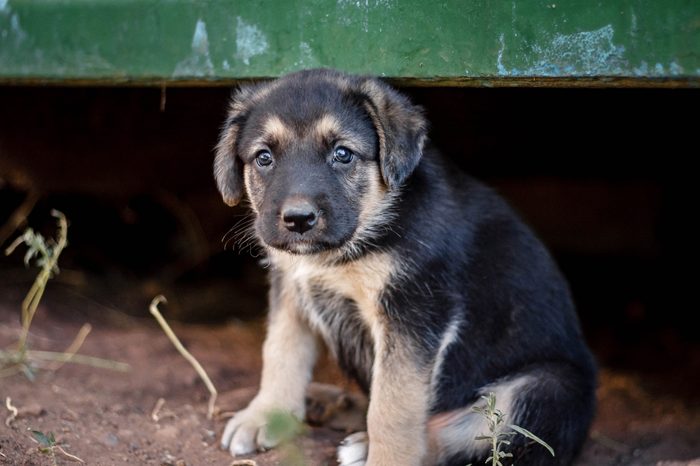The PACT Act makes animal cruelty and abuse illegal on a federal level, but does it go far enough in its effort to end animal cruelty?


The PACT Act makes animal cruelty and abuse illegal on a federal level, allowing for federal charges for the acts of crushing, burning, drowning, suffocating, impaling, and sexually exploiting animals. Jme Thomas of Motley Zoo Animal Rescue says, “PACT is a critical step in animal rights because it brings animals to a higher level of recognition,” in the eyes of the law. “This legislation raises their status from that of property to one of a living being sensitive to pain,” she says. If your dog could talk these are the 30 secrets it would tell you.

Because animals are considered property in the United States, it makes convictions of animal cruelty very difficult, explains Kelly Reeves, co-founder and president of Paw Prints in the Sand Animal Rescue. “This is a step in the right direction to seeing animals as sentient beings and not just a piece of property.”
That said, many animal rights activists still believe the PACT Act falls short. “Unfortunately, there is still so much more that could be done to bring the treatment of animals as a whole to a humane, sentient level,” says Thomas. One big area where the new bill is considered inadequate: Puppy mills.

Puppy mills are exactly what they sound like: Large-scale breeding operations. Their mission? Churning out as many puppies as possible for monetary gain. “At puppy mills, animals are bred over and over without consideration for their well-being or temperament,” Thomas says. “Because of this, animals become products; and when living beings are treated as a commodity, their quality of care always suffers.”
If the thought of that makes your heart hurt, take a break with these adorable puppy pictures that will make you melt.

What are some of the biggest concerns about puppy mills?
Most puppy mills are loud, scary places where the dogs are given the bare minimum food and water and kept in constant confinement, often next to their own waste, Thomas says. “Many of the dogs have never been out of their cages and do not understand grass or sunshine.”
In addition, “The dogs are denied adequate veterinary care, so many suffer and die of very treatable conditions,” Thomas says. “That’s partially because there are so many animals no one notices, but also because their value is not in being healthy, just producing.” Responsible pet owners need to know the silent signs their dog is sick.

The Puppy Mill Project reports there are an estimated 10,000 puppy mills in the United States. These mills breed over 2 million puppies each year, while an estimated 1.2 million dogs are euthanized in shelters every year. That’s just one of many secrets your pet store won’t tell you.

What is the HSUS doing about puppy mills?
The HSUS takes a stand against puppy mills on all possible levels, including supporting legislative changes, conducting investigations and litigation and promoting public awareness and education. The HSUS also works with local authorities when called upon to help shut down the most abusive puppy mills.
Its important to know that, in many cases, puppy mills are not illegal. In most states, a breeding kennel can legally keep dozens, even hundreds, of dogs in cages for their entire lives, as long as the dogs are given the basics of food, water and shelter. When documented cruelty exists, the HSUS assists in shutting down puppy mills with the cooperation of local law enforcement. But while the HSUS is opposed to puppy mills, the HSUS cannot shut down or raid legal businesses. The HSUS is not a government, law enforcement or regulatory agency.
The Stop Puppy Mills campaign for the Humane Society of the United States works to stop the sale of puppy mill puppies and improve standards of care for dogs in commercial breeding operations through both national and local policy efforts and by educating consumers on the issue. The campaign has made important strides toward significantly increasing standards of care for these dogs by getting laws passed in 35 states, as well as upgrades to the federal Animal Welfare Act. The HSUSs investigations of puppy mills and pet stores have led to multiple consumer lawsuits and have shut down hundreds of puppy mills and related pet stores nationwide. Through awareness events, we have educated millions about the problems in the large-scale commercial dog breeding industry.
We’ve rescued more than 11,000 dogs from more than 50 different puppy mills since 2006—dogs who are now in loving homes.
We have supported national bills such as the Puppy Protection Act, which, if passed, would overhaul the conditions for dogs at federally-licensed facilities. We have also successfully pushed for nationwide regulatory reform and stronger enforcement of the federal Animal Welfare Act. We’re also working to stop the sale of puppies from mills, thereby shrinking, and ultimately eliminating, the marketplace that keeps puppy mills in business. We have helped pass laws that prohibit the sale of puppies in pet stores in five states and over 400 localities, and counting.
Our corporate outreach efforts provide positive reinforcement for pet stores that choose to not sell puppies. We helped nearly two dozen pet stores stop selling puppy mill puppies and instead help find homes for dogs from shelters and rescues. This program has helped over 35,000 shelter dogs get adopted into loving families.
The cruel reality of puppy mills
Governor Kathy Hochul today signed legislation (S.1130/A.4283) to ban the sale of dogs, cats, and rabbits at retail pet stores, aiming to end the puppy mill-to-pet store pipeline and stop abusive breeders. Based upon an agreement with the Legislature, this legislation will take effect in 2024 and will also allow pet stores to charge shelters rent to use their space for adoptions.
“Dogs, cats and rabbits across New York deserve loving homes and humane treatment,” Governor Hochul said. “Im proud to sign this legislation, which will make meaningful steps to cut down on harsh treatment and protect the welfare of animals across the state.”
Legislation (S.1130/A.4283) aims to prevent the buying and selling of animals from large-scale, abusive breeders that lack proper veterinary care, food or socialization. Often times, these animals have health issues resulting from poor breeding and can cost families thousands of dollars in veterinary care. The legislation will continue to allow pet stores to host adoption services in conjunction with animal shelters or rescue organizations to help connect New Yorkers with animals in need of a home.
State Senator Michael Gianaris said, “Today is a great day for our four-legged friends and a big step forward in our fight against abusive and inhumane puppy mills. My thanks to Governor Hochul for standing up for the voiceless loving animals who are members of our families and deserve the respect weve shown them today.”
Assemblymember Linda B. Rosenthal said, “I extend an enormous thank you to Governor Hochul for signing this legislation to shut down the puppy mill pipeline. New York State will no longer allow brutally inhumane puppy mills around the country to supply our pet stores and earn a profit off animal cruelty and unsuspecting consumers. By ending the sale of dogs, cats and rabbits in pet stores, shelters and rescues will be able to partner with these stores to showcase adoptable animals and place them into forever homes. Countless families will be spared the heartache of spending thousands on a beloved new pet that is genetically damaged and chronically ill. New Yorks role as a leader in preventing cruelty to animals will inspire other states to follow suit, and that is something the Governor and all of us can be proud to have accomplished.”